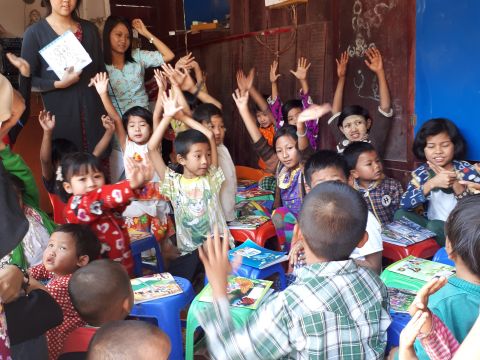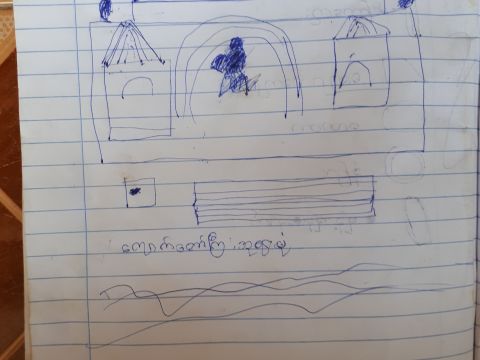The Impact of Urban Life: Interactions from the Field
The school children of the Htantaw village in the Taungthaman Village Tract were asked – What is the most beautiful place in Taungthaman? They could either draw pictures or describe in words. The children drew from their imagination and showed it to the students.
Snacks are important part of a community’s cultural heritage. We included this in our session and served traditional snacks like noe-hta-min or rice mixed with milk.
While engaging with the school children, there was an attempt to find ways to encourage them become connected with their village. This way my students were better able to understand the links between community and urban anthropology.
One of the students shared the following in the classroom after reflection:
Before, I didn’t understand how community engagement relates to urban anthropology which is one of the modules for the third year honours students. But now I clearly understand not only the meaning of community engagement but also how we can engage with people from the urbanised or semi-urbanised areas. Gradually, I see development and challenges of urban life from our field site. A key point that I understood was how the sense of belonging to a local community in school children, who live in Htantaw village, Taungthaman village tract, has lessened because of inflow of new ideas. I now undertsand how this is one of the impacts of urbanisation. Those school children encounter their local identity in their daily life but they do not always notice them. When we discussed cultural identity of Taungthaman village with them, they shared their knowledge by drawing or writing on paper quickly. According to my understanding, I think we should continue to encourage them to memorise such sites of cultural heritage that are there in their mind. Because of our engagement in Taungthaman Village Tract and discussion about local identity with the school children, we were able to practically combine theory and practice as new teaching method for urban anthropology.

